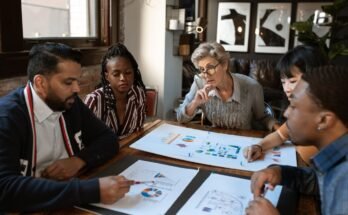That knowledge is powerful, but knowledge is only as good as how you use it. If we know something in depth, we can apply it in practice. Whether in learning a skill, crafting a business model, or changing a habit, its recognising that the deeper the understanding, the more fit a response can be—often knowing to not react is the answer. This application of knowledge is the difference between only knowing something and actually being able to do something about it.
Learning a New Skill
When practicing something new, whether it is playing a musical piece, programming, learning a foreign language, first of all, know and understand the basics. As a case in point a musician who understands the mechanics of musical theory can play with a greater level of expression and improvise far better than one who has simply memorized their notes. In the same way, a programmer who knows how to think algorithmically can transfer that knowledge to new coding languages and complex problem-solving with ease. As the saying goes, you can give a man a fish and feed him for a day, but teach him to fish and he will eat for life.
Developing a Business Model
In business, it can determine success or failure. Entrepreneurs that pay close attention to how the market works, how consumers behave and financial fundamentals are the ones who have the tools and the knowledge they need to make informed decisions. A business leader, on the other hand, can create a sustainable and scalable model by analyzing trends in the industry and the needs of the customers. In contrast, superficial knowledge can provide immediate benefits but falls short in the long run.
Improving Personal Habits
With self-improvement, understanding is the first step toward lasting change and it takes time. Think of someone who is trying to get a healthy lifestyle going. If they have knowledge of nutritional science, exercise science, and mental health, they are likely to build a sustainable process instead of going for crash diets and workout fads. Likewise, the psychology behind habits supports individuals in embracing productive behaviors and dropping negative cycles too.
APRIL 2020 An educator’s life of experience, or at least reflection.
You do not gain knowledge only by reading theory and concepts; experience is also crucial in your life. Applying knowledge in real-world contexts not only solidifies learning but also highlights gaps in knowledge. Analyzing previous experiences assists in improving our method and adds to our understanding. Through this, knowledge is not only amassed, but also developed and adjusted for recent conditions.
Conclusion
It is this application of knowledge that turns facts into useful action. As we know deeper we implement it in life in a better way. Be it learning a skill, building a business model, or developing personal habits, deep insights enable us to be effective in turning knowledge into practice. Knowledge itself is nice to have, but the knowledge becomes powerful when you understand what you learn, when you apply it in your life.
Application of Knowledge: The Power of Deep Understanding



